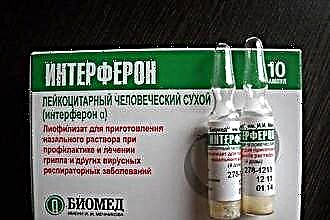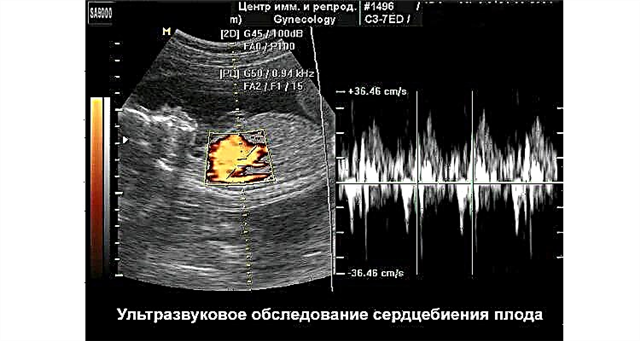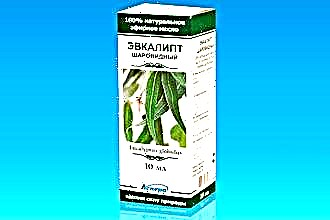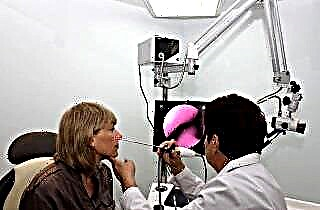Angina (tonsillitis) is a contagious ENT disease that provokes inflammatory processes in the palatine tonsils and oropharyngeal mucosa. Ineffective and delayed treatment of pathology provokes severe complications, some of which constitute a serious threat to life.
 Prevention of angina during an exacerbation of seasonal diseases allows you to prevent the development of pathogenic agents in the ENT organs. The causative agents of epidemic tonsillitis are mainly bacteria, which include streptococci, meningococci, pneumococci, etc. To prevent the development of the disease, it is necessary to take into account the variety of forms of pathology. When drawing up a therapy regimen, etiological factors that are potentially capable of provoking infection are determined. Most of the preventive measures are aimed at increasing the body's resistance and local immunity.
Prevention of angina during an exacerbation of seasonal diseases allows you to prevent the development of pathogenic agents in the ENT organs. The causative agents of epidemic tonsillitis are mainly bacteria, which include streptococci, meningococci, pneumococci, etc. To prevent the development of the disease, it is necessary to take into account the variety of forms of pathology. When drawing up a therapy regimen, etiological factors that are potentially capable of provoking infection are determined. Most of the preventive measures are aimed at increasing the body's resistance and local immunity.
Prevention goals
Prevention of angina in adults is aimed at reducing the risk of developing not only the disease itself, but also complications after it. The oral cavity is inhabited by beneficial and pathogenic bacteria, an imbalance between which contributes to the development of infection. The uncontrolled multiplication of microbes leads to intoxication of the body, resulting in myalgia, headaches, sore throat, hyperthermia, etc.
Preventive measures allow you to prevent a decrease in the reactivity of the body, due to which the risk of developing the disease is greatly reduced. To prevent it, you must:
- observe personal hygiene;
- take vitamins and immunostimulants;
- avoid hypothermia;
- treat chronic diseases;
- get vaccinated on time.
Important! Smoking contributes to a decrease in local immunity and, accordingly, an increase in the risk of developing tonsillitis.
Types of prevention
What are the measures to prevent an infectious disease? Due to the fact that tonsillitis is transmitted by contact and airborne droplets, on the eve of seasonal diseases, it is necessary to undergo a preventive and anti-relapse course of treatment.

Conventionally, all preventive measures are divided into two types:
- public - aimed at preventing outbreaks of disease in large groups: educational institutions, medical institutions, industrial enterprises, etc. Reducing the risk of developing the disease allows mass vaccination, regular disinfection of premises and the workplace;
- individual - the actions of an individual, aimed at increasing their own immunity. To prevent the occurrence of sore throat, it is recommended to rinse, take interferon preparations and vitamin-mineral complexes.
In case of contact with a sick person, it is necessary to use special masks that prevent the penetration of bacteria into the mucous membrane of the nasopharynx and mouth.
Individual prevention
Why is angina dangerous and how to prevent it? A distinctive feature of the disease is the rapid spread of pathogenic flora. Untimely relief of inflammation is fraught with local and systemic complications, which include: otitis media, sinusitis, pyelonephritis, myocarditis, encephalitis, tonsillitis sepsis, retropharyngeal abscess. The danger is that many complications occur after a sore throat within 3-4 weeks.
Pathology negatively affects the state of the cardiovascular, musculoskeletal and urinary systems. To prevent it, you must adhere to the following preventive measures:
 correction of the diet - helps to increase the amount of organic acids, vitamins and microelements in the body that take part in biochemical processes; it is necessary to include fruits, vegetables, cereals and meat products in the daily menu;
correction of the diet - helps to increase the amount of organic acids, vitamins and microelements in the body that take part in biochemical processes; it is necessary to include fruits, vegetables, cereals and meat products in the daily menu;- the use of interferon - an immunostimulating drug that activates the work of T-lymphocytes, phagocytes and killer cells, thereby increasing the reactivity of the body;
- sore throat vaccination - promotes the production of specific antibodies in the body that are resistant to pathogens that provoke sore throat; it is carried out in the autumn-spring period in order to increase the reactivity of the body;
- taking adaptogens - increases the nonspecific resistance of the immune system to pathogenic viruses and bacteria;
- regular physical activity - normalizes metabolic processes in the body by accelerating blood circulation, which increases the tissue reactivity of the ENT organs.
After tonsillitis, general urine and blood tests must be taken within 2-3 weeks, according to which the specialist can determine the presence of complications. A high concentration of leukocytes in the blood often signals inflammatory processes, the progression of which leads to intoxication and the development of serious diseases.
Preventive measures
Prevention of angina consists not only in strengthening the immune system, but also in the treatment of concomitant diseases. Secondary tonsillitis often occurs against the background of the development of inflammatory processes in the nasopharynx, oral cavity, kidneys, gastrointestinal tract, etc.
 After the weakening of the immune defense, the risk of developing sore throat increases several times. To prevent the occurrence of pathology, it is necessary to diagnose and treat in time:
After the weakening of the immune defense, the risk of developing sore throat increases several times. To prevent the occurrence of pathology, it is necessary to diagnose and treat in time:
- pyelonephritis;
- hypertrophic rhinitis;
- sinusitis;
- adenoiditis;
- furunculosis;
- helminthic invasions;
- carious teeth;
- bronchitis.
Most often, secondary tonsillitis develops due to inflammation of the mucous membranes in the nasopharynx.
The above pathologies deplete the immune system, after which opportunistic microorganisms that inhabit the oropharynx begin to actively multiply. To avoid the development of sore throat, patients with chronic diseases need to stop inflammatory processes in the body.
Bicillin prophylaxis
Bicillin prophylaxis - the use of antibacterial drugs, aimed at preventing complications after angina. It is prescribed in case of symptoms of tonsillitis sepsis, cardiac rheumatism, streptococcal shock, etc. To destroy pathogenic bacteria in the body, antibiotics of the penicillin series are used, namely, bicillins.
Bicillins are a separate group of antimicrobial drugs, the components of which are resistant to most gram-positive bacteria. A key feature of antibiotics is their long exposure time. After a single injection, the active components of the drug remain in the blood plasma for 3-4 weeks. Bicillin prophylaxis is prescribed only if serious complications are suspected:
- labyrinthitis;
- otitis media;
- meningitis;
- encephalitis;
- retropharyngeal abscess.
After undergoing an anti-relapse course of treatment, the risk of severe complications is reduced to zero. In cases where the reactivation of an infectious disease has already passed, a specialist can replace penicillins with antibiotics of a wider spectrum of action.

Bicillin preparations
The classic scheme of bicillin prophylaxis involves the use of several drugs of the penicillin series. Post-infectious complications can be provoked by the pathogenic flora represented by various pathogens: staphylococci, streptococci, meningococci, etc. To eliminate it, the following types of medicines are used:
- "Bitsillin-1" - a drug that is similar in its spectrum of antibacterial action to benzylpenicillin; used for the prevention of rheumatism and sepsis that occurs after a sore throat;
- "Bitsillin-3" is a complex bacteriostatic agent, which contains 3 components of benzylpenicillin; used to treat tonsillitis and prevent scarlet fever, rheumatism, erysipelas;
- "Bitsillin-5" is an antibiotic that does not have cumulative properties (it is quickly excreted from the body); used for year-round prevention of recurrence of tonsillitis.
Bicillin prophylaxis is fraught with allergic reactions, therefore it is prescribed only after passing special allergy tests. The drugs are injected only intramuscularly, which is due to their poor solubility in water.

 correction of the diet - helps to increase the amount of organic acids, vitamins and microelements in the body that take part in biochemical processes; it is necessary to include fruits, vegetables, cereals and meat products in the daily menu;
correction of the diet - helps to increase the amount of organic acids, vitamins and microelements in the body that take part in biochemical processes; it is necessary to include fruits, vegetables, cereals and meat products in the daily menu;

